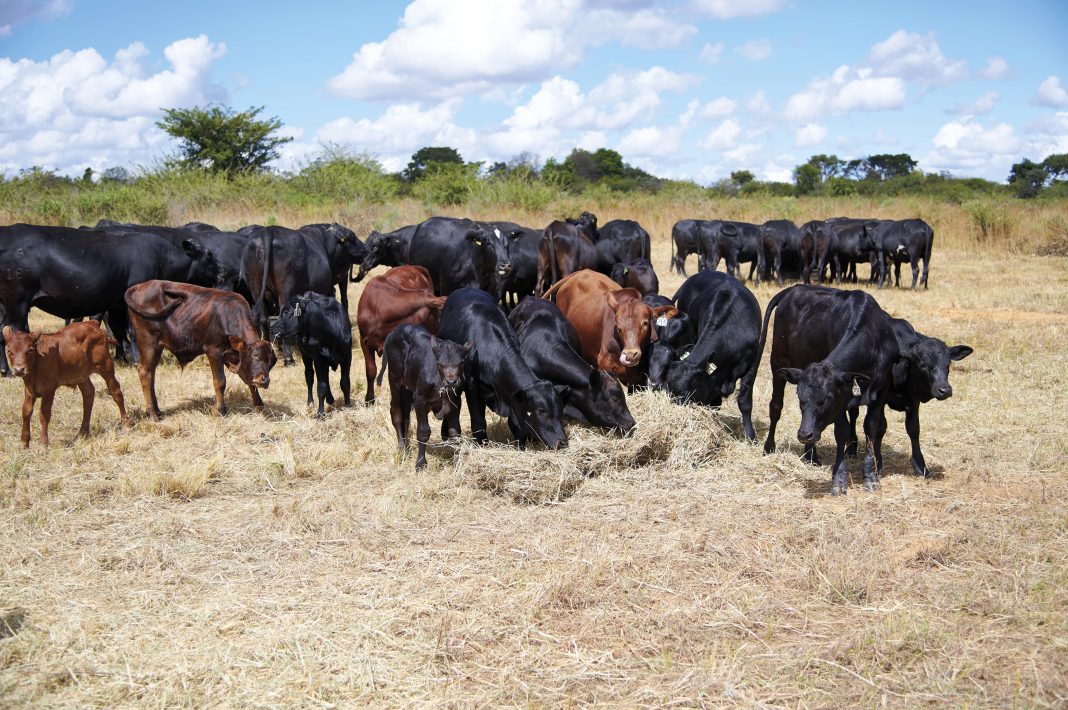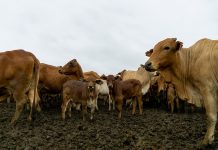By Milliam Murigi
Livestock in Africa contribute 18 percent of global livestock methane emissions, with cattle alone responsible for 70 percent of emissions in Sub-Saharan Africa.
Methane is a potent greenhouse gas with more than 80 times the warming power of carbon dioxide in the first 20 years after it is released. Although it lingers in the atmosphere for a shorter time compared to carbon dioxide, methane is responsible for nearly a third of today’s global warming.
This is why, over the years, global climate negotiations, including the 26th United Nations Conference on Climate Change Conference of the Parties (COP26) in Glasgow, have amplified calls to reduce methane from cattle, recognizing it as one of the fastest ways to slow the pace of warming.
It is against this background that the International Livestock Research Institute (ILRI), with support from the Bezos Earth Fund and the Global Methane Hub, has launched a three-year $3.35 million initiative dubbed Accelerating Reduced Emissions in Indigenous Breeds in Africa.
The initiative is part of the Global Methane Genetics Initiative and aims to breed cattle that produce less methane while boosting productivity, food security, and climate resilience for millions of smallholder farmers across the continent.
“We are going to use cutting-edge science to help African countries breed cattle that produce less methane emissions. What should be clear is that we are not coming up with new cattle breeds, but rather we will be working with the existing indigenous breeds,” says Raphael Mrode, Principal Investigator at ILRI, who will oversee scientific management of the project.
Scientists warn that without urgent intervention, methane emissions from cattle could triple by 2050, driven by population growth and rising demand for animal-derived products. This surge would threaten global climate goals, including the 1.5°C warming target. Livestock, particularly ruminants such as cattle, are a major source of methane, as their digestive process releases significant amounts of the gas into the atmosphere.
“Reducing methane from cattle is one of the most elegant solutions we have to slow climate change,” said Andy Jarvis, Director of the Future of Food at the Bezos Earth Fund. “Thanks to collaboration with the Global Methane Hub, we’re backing an effort that uses age-old selection practices to identify and promote naturally low-emitting cattle – locking in climate benefits for generations to come.”
According to Mrode, this initiative represents an important step towards a more sustainable and productive livestock sector in Africa. By integrating advanced genetics with Africa’s indigenous breeds and farmer knowledge, Africans can achieve meaningful reductions in methane emissions while strengthening rural livelihoods through improved productivity.
The initiative will involve measuring methane emissions from 3,000 cows and tracking production traits in five African countries using advanced laser detectors and mobile applications, while linking the results to existing data on 9,000 cows.
In addition, scientists will profile microbial communities in more than 1,000 tropical cows by analyzing rumen content to understand the relationship between microbes, productivity, and methane emissions.
“Using advanced genetic tools, the initiative aims to breed climate-smart cattle that can better withstand heat, require fewer resources, and produce less greenhouse gas. These improved cattle will be integrated into national breeding programs in Kenya, Ethiopia, South Africa, Burkina Faso, and Benin, helping farmers adapt to climate change while lowering emissions,” says Appolinaire Djikeng, ILRI Director.
To ensure sustainability, Djikeng says that the initiative will also build local capacity by recruiting and training technicians, strengthening national breeding centers, and publishing bull and cow rankings that will be made accessible to farmers.
The initiative is expected to deliver significant climate benefits, including a 12 percent reduction in livestock methane emissions over the next 20 years. This will be achieved through an annual 0.6 percent direct methane reduction at the population level by using bulls and cows that are improved for low methane emission. At the same time, productivity improvements are projected to cut methane production per kilogram of milk by about 20 to 25 percent within just five years.
Beyond emission reductions, the project will generate publicly available genomic data to support widespread and low-cost breeding improvements. It also aims to expand access to more productive, climate-resilient livestock for smallholder farmers across Africa, with particular emphasis on empowering women and youth who are central to the continent’s agricultural systems.







